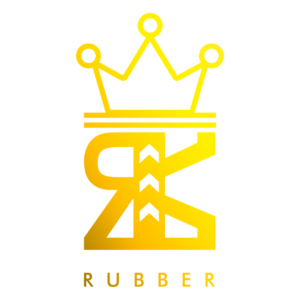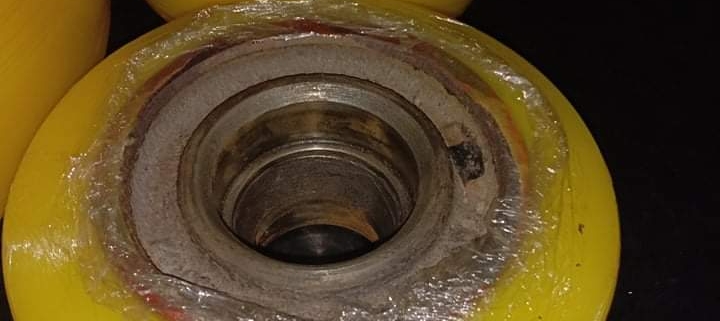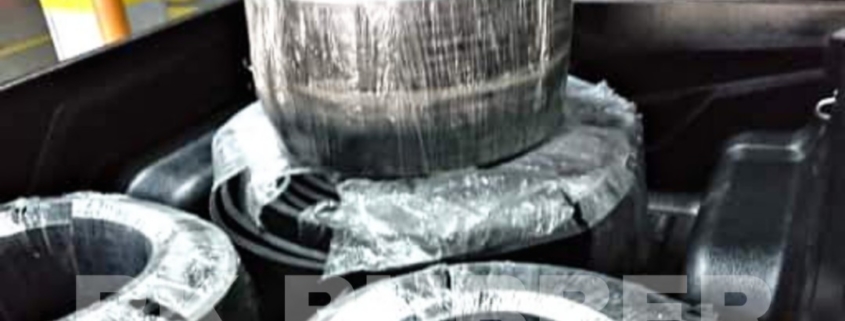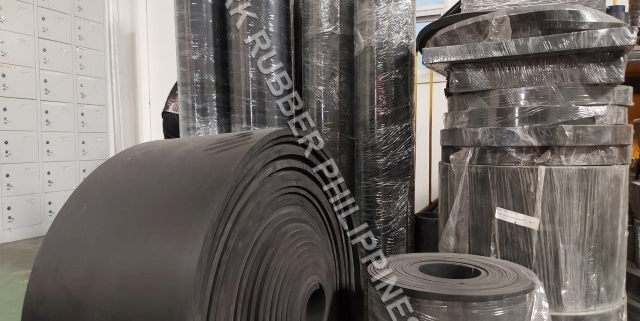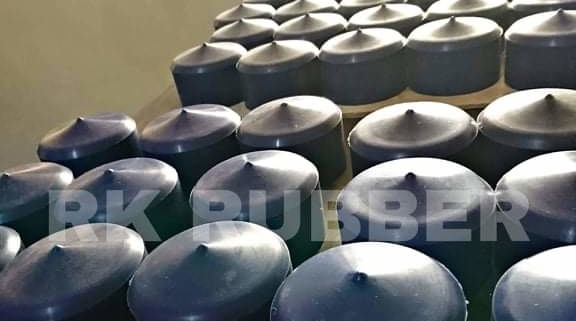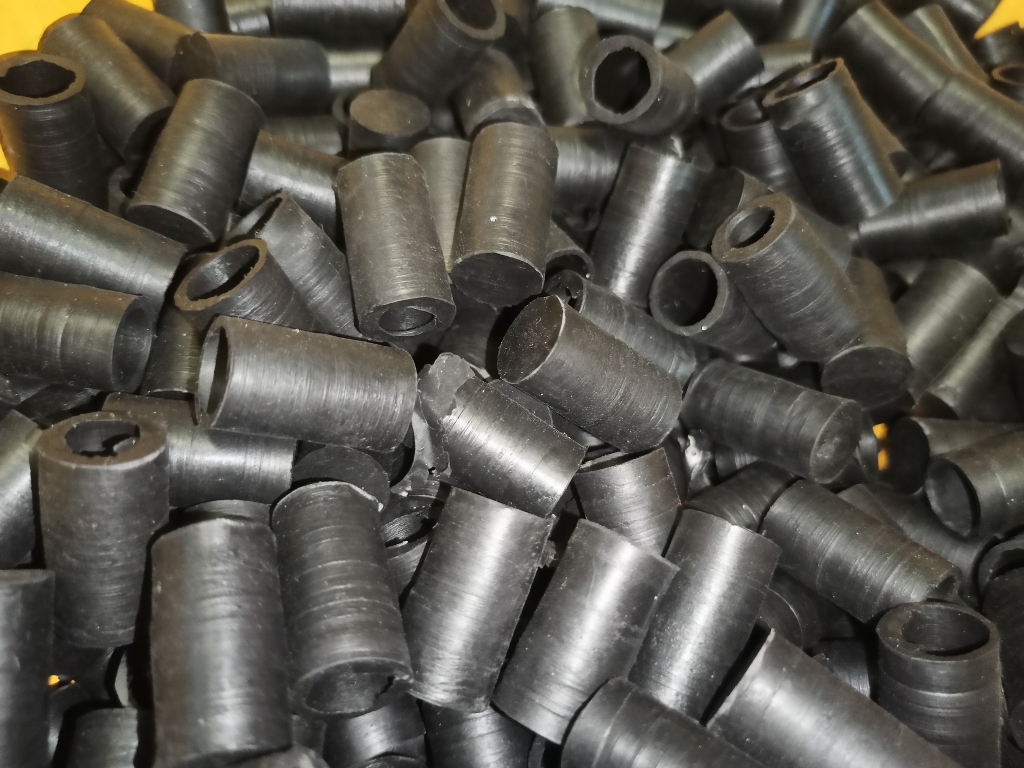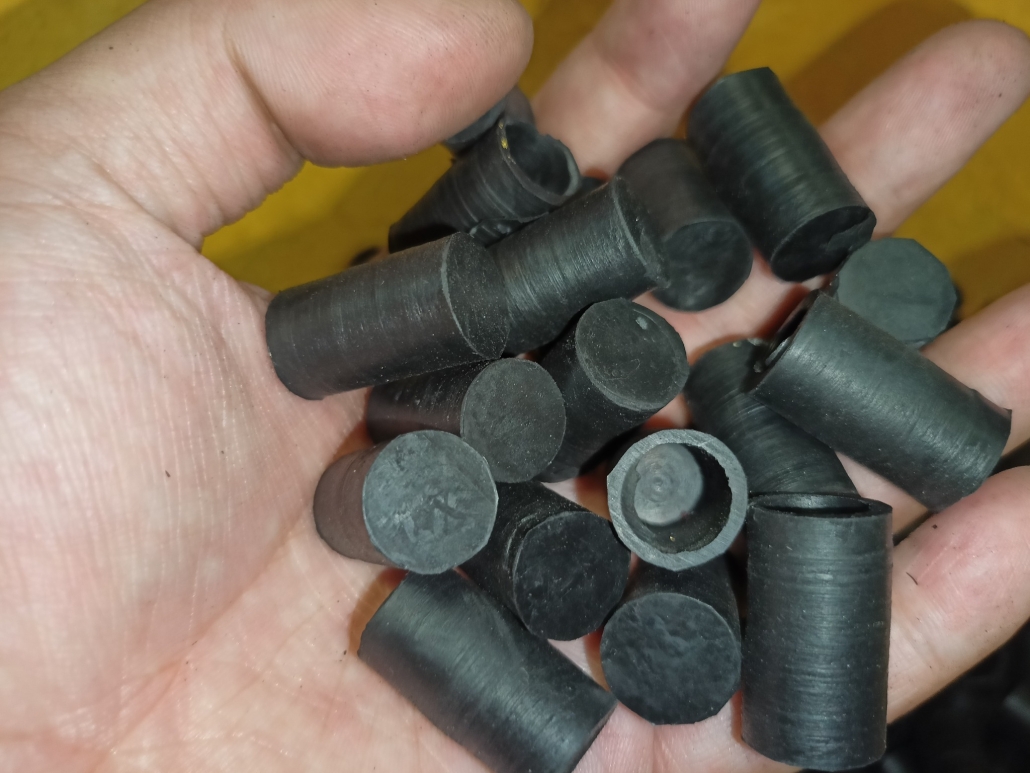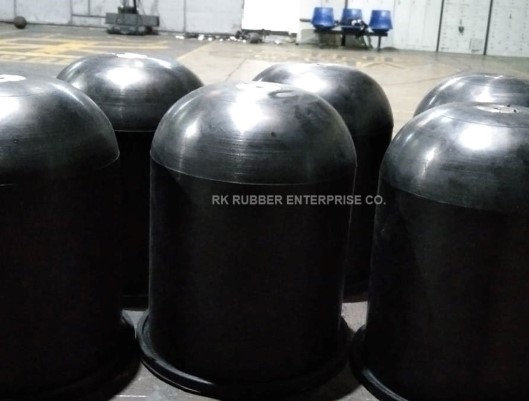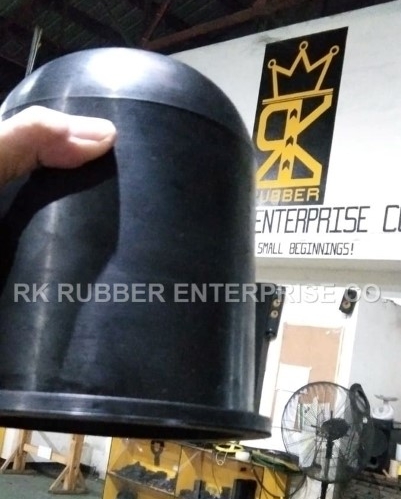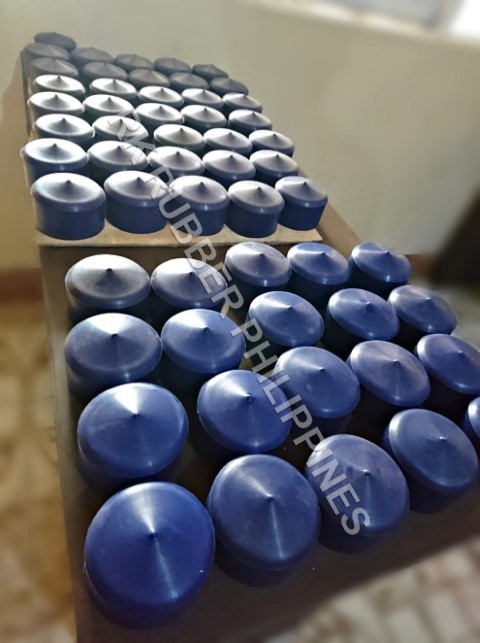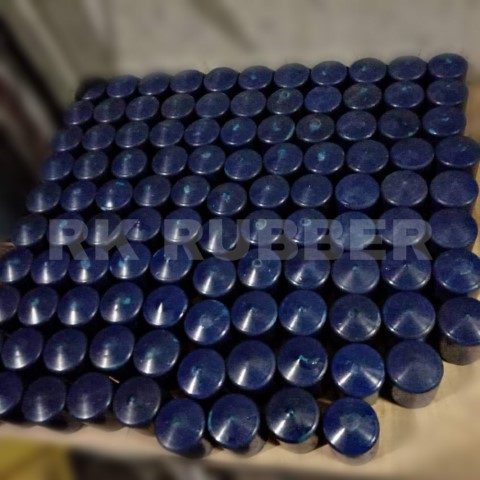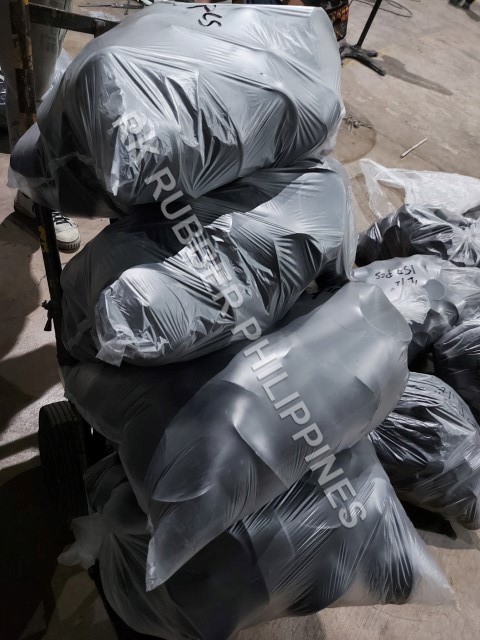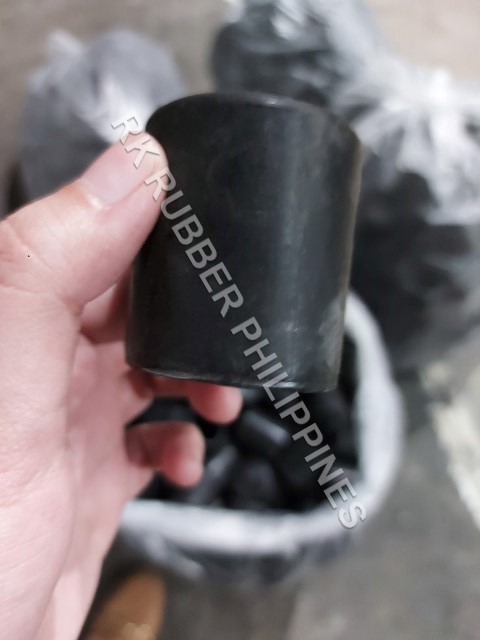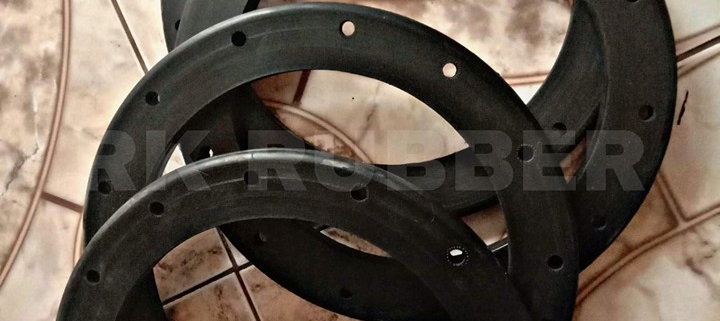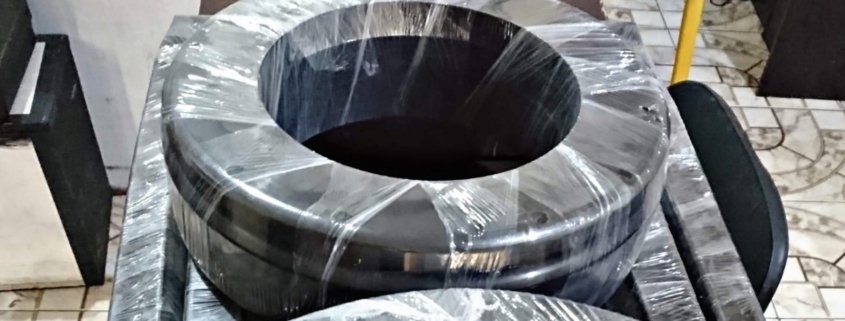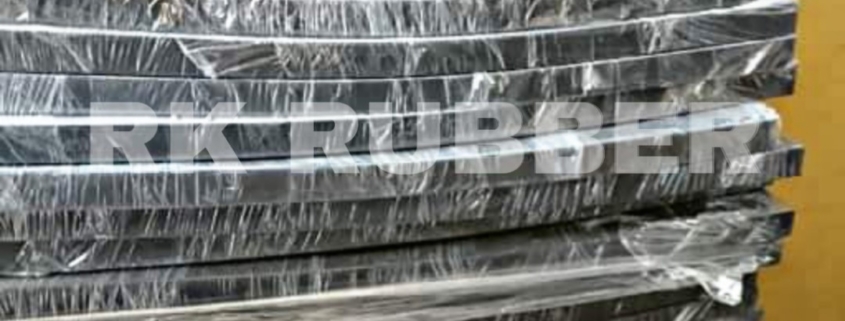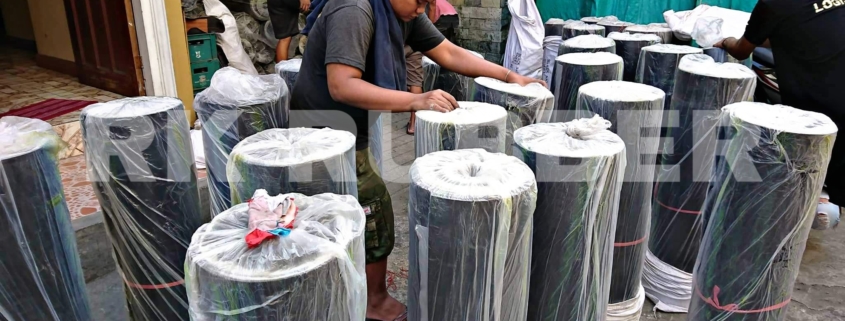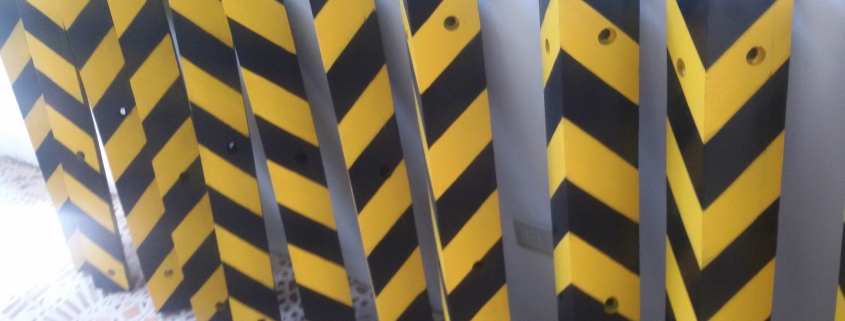Polyurethane Wheel
Polyurethane Wheel Manufacturer in the Philippines
Polyurethane wheel manufacturers in the Philippines provide high-quality products that cater to various industrial applications, offering durable and versatile solutions for material handling, automotive, medical, and retail industries. Local manufacturers, such as RK Rubber Enterprise Co., specialize in producing polyurethane wheels with exceptional durability and resistance to wear and tear. Their products are characterized by superior grip and traction, effective noise reduction, and high load-bearing capacity, making them ideal for heavy-duty equipment. With a thorough understanding of industry-specific needs, these manufacturers offer customization options and tailored customer support, further enhancing the suitability of their products for local industries and applications.
Key Points
- A local polyurethane wheel manufacturer in the Philippines offers reduced lead times and lower transportation costs for customers.
- Customization options are available from local manufacturers to cater to unique requirements and specific industry needs.
- Strict quality assurance measures are in place to meet international standards for polyurethane wheels in the Philippines.
- Local polyurethane wheel manufacturers provide enhanced customer support tailored to the needs of Filipino businesses and industries.
- A local polyurethane wheel manufacturer can supply high-quality wheels for various applications, including material handling, medical, and retail industries.
Importance of Polyurethane Wheels
In modern industrial settings, polyurethane wheels are essential, as they form an integral part of various material handling equipment, such as pallet jacks and forklifts. These wheels are renowned for their versatility and durability, making them a preferred choice in various industrial applications. They offer several key benefits, including durability, grip and traction, noise reduction, weight capacity, and shock absorption.
Polyurethane wheels are highly resistant to wear and tear, lasting considerably longer than rubber or plastic alternatives. This durability translates to lower maintenance costs and less frequent replacements. Their superior grip and traction make them suitable for use on slippery surfaces, enhancing maneuverability and control. Additionally, polyurethane material is effective in reducing noise levels, which is particularly advantageous in environments where maintaining a low noise level is vital.
The use of polyurethane wheels is widespread across various industries, including material handling, automotive, warehousing and logistics, medical and care facilities, and retail and hospitality. Their ability to handle heavy weights while providing a smoother, quieter operation is unmatched by other materials.
Benefits of Polyurethane Wheels
Numerous benefits are associated with the use of polyurethane wheels, making them a preferred choice in various industrial applications. One key advantage is their exceptional durability and resistance to wear and tear, resulting in lower maintenance costs and reduced replacement frequency. In addition, polyurethane wheels offer superior grip and traction, making them suitable for use on slippery surfaces, thereby enhancing maneuverability and control.
Another significant benefit is noise reduction, which is particularly advantageous in environments where maintaining low noise levels is essential. Polyurethane wheels also possess high load-bearing capacity, making them ideal for heavier equipment. Moreover, they provide effective shock absorption, protecting floors and surfaces from damage while offering a smoother ride. Their chemical and solvent resistance properties also make them suitable for use in harsh environments. Overall, the benefits of polyurethane wheels make them an indispensable component in various industries, providing users with a reliable and efficient solution for their equipment needs. Their unique combination of properties sets them apart from other materials, ensuring peak performance in a range of applications.
Polyurethane Wheel Applications
Virtually every industry relies on polyurethane wheels to a certain extent, given their versatility and adaptability to diverse applications. Their durability, grip, and traction make them suitable for use on various surfaces, including slippery and uneven terrains. Polyurethane wheels offer effective shock absorption, providing a smoother ride and protecting floors and surfaces from damage.
One of the key applications of polyurethane wheels is in heavy-duty equipment, such as forklifts and pallet jacks, where their high load-bearing capacity and durability are indispensable. Additionally, they are used in environments where noise reduction is essential, such as hospitals and retail settings. Their non-marking characteristics make them suitable for use on delicate surfaces. Polyurethane wheels are also used in construction and industrial settings, where their robustness and ability to withstand harsh conditions are critical.
Their chemical and solvent resistance make them suitable for environments exposed to harsh chemicals and solvents. Polyurethane wheels provide a cost-effective solution in the long run, despite a higher initial cost, due to their longevity and reduced maintenance needs.
Industries Using Polyurethane Wheels
Polyurethane wheels are utilized across various industries due to their exceptional durability, load capacity, and noise reduction properties. Material handling applications, such as forklifts and pallet jacks, rely on polyurethane wheels to efficiently manage heavy loads, while medical and care facilities appreciate their smooth maneuverability and quiet operation. Additionally, retail and hospitality environments, as well as warehousing and logistics operations, benefit from the unique properties of polyurethane wheels, making them an essential component in these sectors.
Material Handling Applications
Material handling equipment relies heavily on the performance of its wheels, and polyurethane wheels have established themselves as an essential component in this sector. The durability, load-bearing capacity, and shock absorption properties of polyurethane wheels make them an ideal choice for material handling applications.
| Industry Application | Equipment Used | Benefits of Polyurethane Wheels |
|---|---|---|
| Warehousing and Storage | Pallet jacks, forklifts, and industrial carts | High load capacity, reduced noise levels, and smooth maneuverability |
| Manufacturing and Assembly | Conveyor systems and assembly line equipment | Shock absorption, traction, and resistance to wear and tear |
| Logistics and Distribution | Material handling equipment, pallet trucks, and dollies | Load-bearing capacity, durability, and reduced maintenance costs |
| Construction and Mining | Heavy-duty equipment, cranes, and excavators | High load capacity, shock absorption, and resistance to harsh environments |
Polyurethane wheels are widely used in various material handling applications due to their exceptional performance, durability, and cost-effectiveness. They provide a smoother ride, reduce noise levels, and protect floors and surfaces from damage. The benefits of polyurethane wheels make them an indispensable component in the material handling sector.
Medical and Care Facilities
In environments where patient comfort and care are paramount, the right equipment can make all the difference. In medical and care facilities, polyurethane wheels are commonly used in hospital beds, medical carts, and other equipment to guarantee smooth, quiet operation. Their noise reduction capabilities are especially valuable in these settings, minimizing disruptions to patients and healthcare professionals.
The high load capacity of polyurethane wheels also makes them suitable for heavy medical equipment, such as MRI and X-ray machines. Their durability and resistance to wear and tear guarantee that equipment remains functional and reliable over time, reducing maintenance costs and downtime.
In addition, polyurethane wheels are easy to clean and maintain, which is crucial in medical environments where hygiene is critical. Their resistance to chemicals and solvents also makes them ideal for use in facilities where harsh cleaning agents are used. Overall, polyurethane wheels play an essential role in guaranteeing the effective operation of medical equipment, supporting the delivery of quality patient care and promoting a safe, healthy environment. Their use in medical and care facilities is a demonstration of their versatility and reliability.
Retail and Hospitality Environments
High-traffic environments like shopping malls and hotels require equipment that not only functions efficiently but also complements the aesthetic appeal of these establishments. Polyurethane wheels, with their sleek design and durable construction, are an ideal choice for these settings. In retail environments, polyurethane wheels facilitate the smooth movement of shopping carts, shelves, and display racks, minimizing noise and vibration. This creates a more pleasant shopping experience for customers.
In hospitality settings, such as hotels and restaurants, polyurethane wheels are used in equipment like room service carts, cleaning carts, and food service equipment. Their noise-reducing properties guarantee that these operations do not disturb guests. Additionally, polyurethane wheels are resistant to chemicals and solvents, making them suitable for use in kitchens and other areas where cleaning agents are frequently used. Overall, polyurethane wheels offer a combination of functionality, durability, and aesthetic appeal that makes them a preferred choice for retail and hospitality environments. Their use can contribute to a more efficient, safe, and enjoyable experience for both customers and staff.
Warehousing and Logistics Operations
Within the domain of logistics and warehousing, efficient and reliable equipment is paramount to maintaining smooth operations and ensuring timely delivery of goods. Polyurethane wheels play an essential role in this context, offering a unique combination of durability, load-bearing capacity, and shock absorption. In warehousing and logistics operations, polyurethane wheels are used in equipment such as pallet jacks, forklifts, and industrial carts, facilitating the movement of goods across various surfaces.
The high load-bearing capacity of polyurethane wheels enables them to handle heavy pallets and equipment, reducing the risk of damage or collapse. Additionally, their shock-absorbing properties minimize the impact on floors and surfaces, preventing damage and reducing maintenance costs. Polyurethane wheels also provide excellent grip and traction, ensuring smooth and controlled movement of equipment, even on slippery or uneven surfaces.
In the Philippines, a reliable polyurethane wheel manufacturer can provide customized solutions for warehousing and logistics operations, ensuring that equipment is designed to meet specific needs and requirements. By leveraging the benefits of polyurethane wheels, logistics and warehousing operations can optimize efficiency, reduce costs, and enhance overall performance.
Polyurethane Wheel Key Features
Key characteristics of polyurethane wheels distinguish them from other wheel materials, rendering them a preferred choice for various industrial applications. Their unique properties make them suitable for heavy-duty operations, providing a durable and long-lasting solution.
Some of the key features of polyurethane wheels include:
- High Load-Bearing Capacity: Polyurethane wheels can support heavy loads without deformation, making them suitable for equipment that handles considerable weight.
- Excellent Traction and Noise Reduction: They provide excellent grip and traction, while notably reducing noise levels compared to traditional rubber or plastic wheels.
- Effective Shock Absorption: Polyurethane wheels offer effective shock absorption, providing a smoother ride and protecting floors and surfaces from damage.
These features make polyurethane wheels an essential component in various industries, including material handling, automotive, and medical. Their ability to handle heavy weights, reduce noise, and provide a smooth ride makes them a preferred choice for applications that require durability and performance. The unique combination of properties in polyurethane wheels sets them apart from other wheel materials, making them a crucial component in many industrial operations.
Choosing a Local Manufacturer | RK Rubber Enterprise Co.
When evaluating polyurethane wheel suppliers, selecting a local manufacturer can offer several advantages, including reduced lead times, lower transportation costs, and improved customer support. RK Rubber Enterprise Co. is a reputable polyurethane wheel manufacturer in the Philippines that offers a range of benefits to customers.
| Benefits | Description |
|---|---|
| Reduced Lead Times | Local manufacturing allows for faster production and delivery times, guaranteeing customers receive their products quickly. |
| Lower Transportation Costs | By manufacturing locally, transportation costs are considerably reduced, resulting in cost savings for customers. |
| Enhanced Customer Support | RK Rubber Enterprise Co. offers personalized customer support, making certain that customers’ needs are met efficiently. |
| Customization Options | The company provides customization options to meet specific customer requirements. |
| Quality Assurance | RK Rubber Enterprise Co. adheres to strict quality control measures to guarantee that products meet international standards. |
Frequently Asked Questions
What Is the Lead Time for Polyurethane Wheel Orders?
Order lead times for polyurethane wheels typically vary between 2-6 weeks, depending on production schedules, material availability, and shipping logistics, ensuring timely delivery of high-quality, customized wheels that meet diverse industrial applications and needs.
Can Custom Polyurethane Wheel Designs Be Manufactured?
Custom polyurethane wheel designs can be manufactured to meet specific industry requirements, with varying diameters, widths, and hub configurations available, making them adaptable to diverse applications and equipment needs, ensuring ideal performance and efficiency.
Are Polyurethane Wheels Suitable for Outdoor Use?
Polyurethane wheels can be suitable for outdoor use, depending on the specific formulation and design. Chemical-resistant polyurethane wheels can withstand harsh outdoor environments, but exposure to UV radiation and extreme temperatures may impact their lifespan.
What Is the Standard Warranty for Polyurethane Wheels?
Typically, polyurethane wheel manufacturers offer a one- to three-year warranty, covering defects in materials and workmanship, with some extending up to five years for specific product lines, depending on application and usage conditions.
Do You Offer On-Site Installation for Polyurethane Wheels?
On-site installation services for polyurethane wheels are convenient, ensuring proper fitment and ideal performance. Our experienced technicians provide efficient and safe installation, minimizing equipment downtime and maximizing operational efficiency and productivity.
